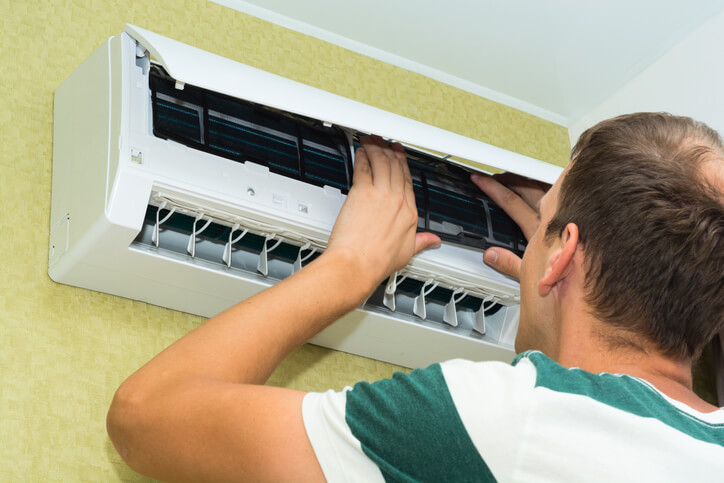
Buying a home is one of the biggest decisions you’ll ever make in your life. It’s not just about finding a place to live but also about investing money into something that will generate an income for the foreseeable future.
The home-buying process can be daunting and confusing, so we’ve compiled five things you should know that will help simplify this process and ensure you get the best home possible!
1. You Need a Reliable Real Estate Agent

Find a trustworthy, dependable real estate agent. You’ll need someone who can help you navigate the process of finding and purchasing your home.
One of the best ways to find the right agent is to know what you want in a house. Know the location, size, and even the price of the property you’re wanting to buy. There is no point in wasting time with an agent that specializes in properties where you don’t want to live or who doesn’t have your budget range available.
Create a home buying checklist just before house hunting begins, so you can cover all your bases. The list will include the items needed to close on a home (down payment, earnest money deposit), potential homeowners insurance needs (homeowners’ or renters’), and credit score checks if necessary for loan qualifications.
Now, you will come across at least two types of real estate agents: the home buyer’s agent and the seller’s agent.
- The home buyer’s agent is a real estate professional who represents the homebuyer during a transaction.
- A seller’s agent works exclusively for those selling residences on behalf of their clients. Homebuyers typically pay commission to the agents at closing when they purchase properties.
Once you meet with agents, it’s important not to be too shy when asking them questions. This will help you figure out whether these professionals really understand your needs and goals. Meanwhile, your information and questions can help these professionals show you all possible options based on what you are looking for and can afford.
One of the questions you can ask is about service agreements such as whether the brokerage offers 24-hour availability for showing properties and providing feedback on homes before showings, so buyers can prepare themselves in advance.
You can also ask questions about their experiences, credentials, and customer service. Make sure you know the answers to the following:
- How long has he/she been in business?
- How many properties does this person sell each year?
- Do I like them?
- Are they honest and ethical?
Homebuyers should be on the lookout for agents who are willing to negotiate. They won’t get what they want by default, but it’s always worth asking if there is any wiggle room in the price or mortgage terms.
Homebuyers need to remember that an agent will make their commission from both parties when they sell a home, so homebuyers can use this knowledge to leverage more toward themselves and not give everything away right off the bat.
3 Tips to Finding a Good Real Estate Agent
- Look for local home listings. There are many online real estate services in the market, but not all have access to what you need when it comes to home prices and other information about your area. It’s also important that people doing home searches know which websites they can trust.
- Check out their website. You should be able to tell if they are current and up-to-date on home listings, not just their own.
- Get recommendations. Ask friends or family members for recommendations of reliable agents in the area where you want to buy a home.
2. Be Aware of the Homeownership Costs
Most homebuyers know that they may need a 20 percent down payment to secure a house. Depending on the loan, it can be even lower. However, a down payment is not the only thing that matters in mortgage and homeownership. There are always more expenses associated with owning property and these should be taken into account beforehand.
- Mortgage. The type of mortgage you get is going to make an impact on how much money is needed upfront for closing costs as well as monthly payments after buying the home. In addition, the length of time between when one gets approved for a home loan and when they close can also affect what funds need to be held during this interim period until everything goes through without any problems.
- Closing Costs. They can vary from state to state and even among lenders. Homebuyers should be aware of this before deciding what property they want to purchase. Usually, it is the one with the lowest closing costs besides good mortgage terms.
- Other Fees. One expense people often forget or overlook is transaction fees, which involve government charges and homeowner’s insurance. The fees can vary by state, so people buying homes should know how much they’re going to cost them if purchasing within their area. In addition, there are costs like title insurance, attorney fees (if applicable), and notary public fee (if buying from outside the country). These can vary depending on location and some other factors but it’s good to be aware that they exist in order to plan appropriately.
- Interest. Mortgage interest is the amount of interest homebuyers will pay on their home loan. As such, this number can vary widely depending on how much you borrow and for how long. The more money borrowed from a lender to make your home purchase, the higher the mortgage rate because lenders are taking additional risks with larger loans.
For example, if you buy a home that costs $100,000 and take out an 80% LTV (loan to value) mortgage at a fixed rate of interest of 15%, then your monthly payment would be about $905 including taxes and insurance but not homeowners’ association dues or private mortgage insurance premiums. These could add another $200 to $300 per month depending on whether they’re required by law.
The home loan interest rates are typically fixed for the entire mortgage, but adjustable-rate mortgages (ARMs) offer borrowers a lower initial rate and no prepayment penalties. If you have an ARM with a low introductory or teaser rate that is set to reset within three years of your purchase date, then it could be worth it even if the new monthly payment will be significantly higher after the adjustment. This scenario assumes that home prices stay relatively stable during this timeframe so as not to offset any potential savings from refinancing into a new home loan with better terms.
It’s not just enough to know how much money you have for a down payment. It’s also important to figure out where that leaves you after closing costs, mortgage payments, and other expenses over time.
3. Prequalification Is Essential

Being prequalified is different from being pre-approved, but both are essential steps in buying a house. Getting prequalified by at least two different lenders will give you a good sense of what kind of loan works best for your current financial situation. There are many factors that differentiate loans from one another, such as terms or interest rates, so make sure to get a home loan that is the best for you.
Whether you are under a pre qualification or pre-approval stage, your credit score may matter. A credit score is a number that reflects the risk you pose to creditors. The higher your score, the less of a risk you are.
Credit scores range from 300 points to 850 points, with 300 being the worst and 850 being the best. The average credit score is around 600 and above. The minimum credit score you should have will depend on the lender, so don’t be surprised if the numbers will vary.
Needless to say, people with good scores can get lower interest rates on home loans and other types of financing like car loans or student debt. People with bad scores may have trouble getting any loan at all.
This is because lenders will assume that people with high credit scores have good payment histories for loans/credit cards or low debt relative to total available credit. Meanwhile, those with bad credit may have not been able to pay their bills, have had too many credit inquiries and bankruptcy filings, or don’t have a very good payment history. All these spell risks for lenders.
Check your credit score from at least two different agencies before applying for any home loans. Financial institutions may require this, and it can also give you an idea of how much you should work to improve your financial standing if needed and get the loan you want.
4. A Bad Buy Is Expensive, so Always Look for Red Flags
Buying a home can be an overwhelming process. There are many considerations and steps to take before you’re ready to officially seal the deal with your offer. But there are also red flags that should give you pause if they appear during negotiations or once home inspections have been completed.
Some of these potential issues include:
- Negotiating Price. This is one major reason for having home inspectors perform their work as well as it’s important to have professionals look at the home in question rather than relying on seller disclosures, which may not always paint the whole picture.
- Appraisal value. If this doesn’t match with expectations, then watch out! You’ll want someone from the mortgage company involved since this could affect the home’s value.
- Quality of home. This could be a deal breaker. If you notice issues with the home, then it might not even be worth paying for an inspection to save money since this is probably going to cost more than what one would think at first glance.
- Neighborhood safety concerns. You’ll want someone who knows the area well enough as they can point out any concerning features that may have been overlooked by others.
Look out for red flags when viewing properties with a real estate agent or broker too. These are either things that one party does not disclose about the property or something the other party cannot do anything about (like being exposed on all sides). They could cost you tens of thousands over time as they wear down on both parties’ finances.
Take all steps necessary before signing on the dotted line, so make sure you’re doing your research.
5. You Can Save a Lot of Money and Trouble Later by Doing Home Inspections

During a hot seller’s market, many homebuyers skip home inspections or even buy properties unseen just to secure it. But this can be problematic in the long run.
A home inspection will provide you with a comprehensive list of issues, such as faulty wiring or plumbing, that may need to be repaired for your home to function properly.
In addition, many home inspectors carry out routine upkeep checks on various parts of homes so that they can advise homeowners about how often repairs are necessary for different products like furnaces or dishwashers. Besides, home inspections guarantee that the home is safe to live in.
The cost of this service varies by region but generally ranges from $500 to $1,000 per visit depending on the size and age of the home being inspected.
A special type of inspection is a termite inspection, which isn’t typically done unless it’s part of a mortgage qualification process (to qualify for a home loan). This type of home inspection will include soil testing to make sure there are no termites that could destroy your home.
Most mortgages require a yearly termite inspection, which costs around $200 per visit. A licensed inspector performs this. They will look at various points around the property to make sure it’s not infested with any destructive termites or other pests.
Tips for Making Sure You’re Getting the Best Inspection
- Get multiple quotes from different home inspectors. You can then compare prices and get an idea of what type of information will be included with each inspection.
- If possible, try to find out which inspector has inspected homes similar to yours. This may allow them insight into potential problems that could arise because they’ve seen it happen before (such as an old home).
- Ask about any discounts or deals offered by the home inspector company. Some offer seasonal specials such as during winter months when there typically isn’t much construction going on.
- Check home inspector’s reviews. This can give you an idea of how their service was and if they were thorough with the inspection.
The most important thing to remember when you’re considering buying a home is that this decision will impact the rest of your life. We hope these five tips have given you some valuable information and helped simplify the process, so it feels less daunting.